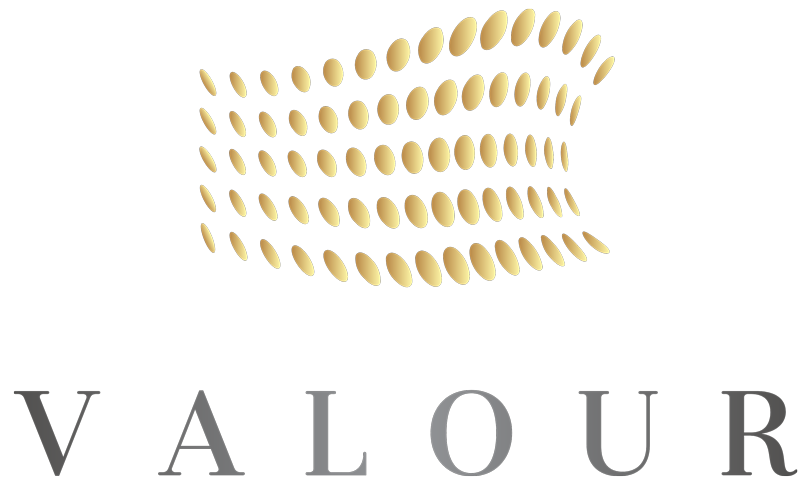2025 U.S. Student Visa: The Complete Guide
F-1 Visa Application Process, Interview Preparation, and Financial Documentation
Not sure where to start with your F-1 student visa application?
Valour has compiled the latest application process, interview tips, and document checklist everything you need to understand the process in one comprehensive guide!
📢 Note: U.S. visa policies have been unstable recently. Be sure to stay updated with official announcements and maintain close contact with your advisor. Plan your travel carefully and remain flexible with your study abroad schedule.
Types of U.S. Student Visas
F-1 Student Visa
The F-1 visa is a non immigrant visa issued by the U.S. government for international students who plan to pursue full time study in the United States. Applicants must enroll in schools certified by the U.S. Department of Education and registered with the Student and Exchange Visitor Program (SEVP).
Typical F-1 visa purposes include:
-
Pursuing formal degrees such as Bachelor’s, Master’s, or Doctoral programs
-
Enrolling in English as a Second Language (ESL) programs
-
Studying Associate degree programs
J-1 Exchange Visitor Visa
The J-1 visa is designed for exchange visitors participating in programs arranged by educational institutions, governments, or approved exchange organizations.
Typical J-1 visa purposes include:
-
International exchange students, usually for 6 months to 1 year
-
Participating in government, school, or third-party sponsored research or educational exchange programs
-
Summer work and travel, medical observation, or short term research visits
F-1 Student Visa Application Process
1.Receive Admission and Form I-20
- After being admitted to a school, you will receive a Form I-20 (Certificate of Eligibility), which is one of the most important documents for your visa application.
- Check that the information on the I-20 such as your personal details, SEVIS ID number, tuition, and program start date is accurate.
2.Pay the SEVIS Fee (Form I-901)
- Go to the official SEVIS I-901 website and pay the SEVIS fee of 350 USD.
- After payment, be sure to print the receipt (this is very important), as you will need to bring it to your visa interview.
3.Complete the DS-160 Form (Online Nonimmigrant Visa Application)
- Fill in the DS-160 form with your personal details, education, work experience, and travel history (all in English).
- Upload a recent passport style photo (5×5 cm, white background, taken within the last six months).
Print the DS-160 confirmation page (very important, required for the interview).
Pay the Visa Application Fee and Schedule Your Interview
Visit the official website to:
-
Create an account and enter your basic information
-
Pay the 160 USD visa application fee, and print the payment receipt (very important, required for the interview)
-
Schedule your interview appointment (Taipei)
After booking, be sure to print the appointment confirmation page (very important, required for the interview).
F-1 Visa Interview Required Documents Checklist
-
Passport / old passports
-
Form I-20
-
DS-160 confirmation page
-
SEVIS fee receipt
-
Visa interview appointment confirmation letter
-
One physical 5×5 cm passport photo (white background)
-
Proof of financial support
-
Academic transcripts and diplomas
-
English proficiency test scores
-
Family and personal background documents
Make sure you have prepared every document on the list before your interview.
How to Prepare Financial Proof for the F-1 Visa?
Calculation of Required Amount
Based on the total listed on your school’s I-20 form (usually includes tuition, housing, books, insurance, and living expenses).
Example:
-
One-year tuition: USD 30,000
-
One-year housing & living expenses: USD 15,000
-
Books, insurance, and other fees: USD 2,000
Total: USD 47,000
Valour Tip: We recommend preparing at least USD 50,000 in financial proof, with an extra 10–20% as a buffer for unexpected expenses.
Important Notes for Financial Proof
-
Bank Statement/Certificate of Deposit (with a minimum holding period of at least one month; the longer, the better)
-
Parent/sponsor income proof (e.g., employment verification + salary slips for the last 3 months).
-
Time deposit or liquid investment assets (can be included if they can be accessed quickly).
-
Scholarship or grant award letter (if applicable).
-
All documents are recommended to be in bilingual format (Chinese–English) or provided with an English translation.
F-1 Visa Interview Questions and Answering Tips
Common F-1 Visa Interview Questions
-
Which university/major/location are you applying for?
-
Who will cover your tuition and living expenses?
-
What are your plans after graduation?
-
Do you have relatives in the U.S.? Do you have any intention to immigrate?
Tip: Avoid showing any intent to immigrate. Emphasize your plans to return home and your local connections.
Suggested Response Directions
-
Clearly state that you plan to return to Taiwan after graduation and apply what you learned in the U.S. to a family business, local workplace, or research field.
-
Highlight long term ties to Taiwan, such as having family there, a fixed career plan, or future studies in Taiwan or the Asia Pacific region.
-
Mention specific plans such as participating in local internships, corporate programs in Taiwan, or employment opportunities after returning home.
F-1 Visa Results and U.S. Entry Guidelines
If the interview is successful: The consular officer will keep your passport for visa processing.
If the interview is unsuccessful: The officer will return your passport immediately.
After Visa Approval
-
Typically, it takes 5–7 business days to receive your passport with the visa stamp.
-
You can choose to have it mailed or pick it up at a designated location.
Entry to the United States
-
You may enter the U.S. no earlier than 30 days before the program start date listed on your I-20.
-
When entering, be prepared to present:
-
Passport with F-1 visa
-
Form I-20
-
Financial proof
-
School contact information
-
F-1 Visa FAQ
How long is the F-1 visa valid?
The F-1 visa is generally valid for the duration of the program listed on your I-20, up to a maximum of five years.
What if my visa interview is unsuccessful?
You can reapply and attend the interview again, but it is important to understand the reason for denial and strengthen your application documents before reapplying.
📢 Reminder: U.S. visa policies have been unstable recently. Please make sure to stay updated with official announcements and maintain regular contact with your education advisor. Plan your schedule carefully and remain flexible with your study abroad plans.
If you need to adjust your study abroad path on short notice, feel free to contact Valour Education. Our professional advisors will help you develop contingency plans and prepare a tailored timeline for your application.

